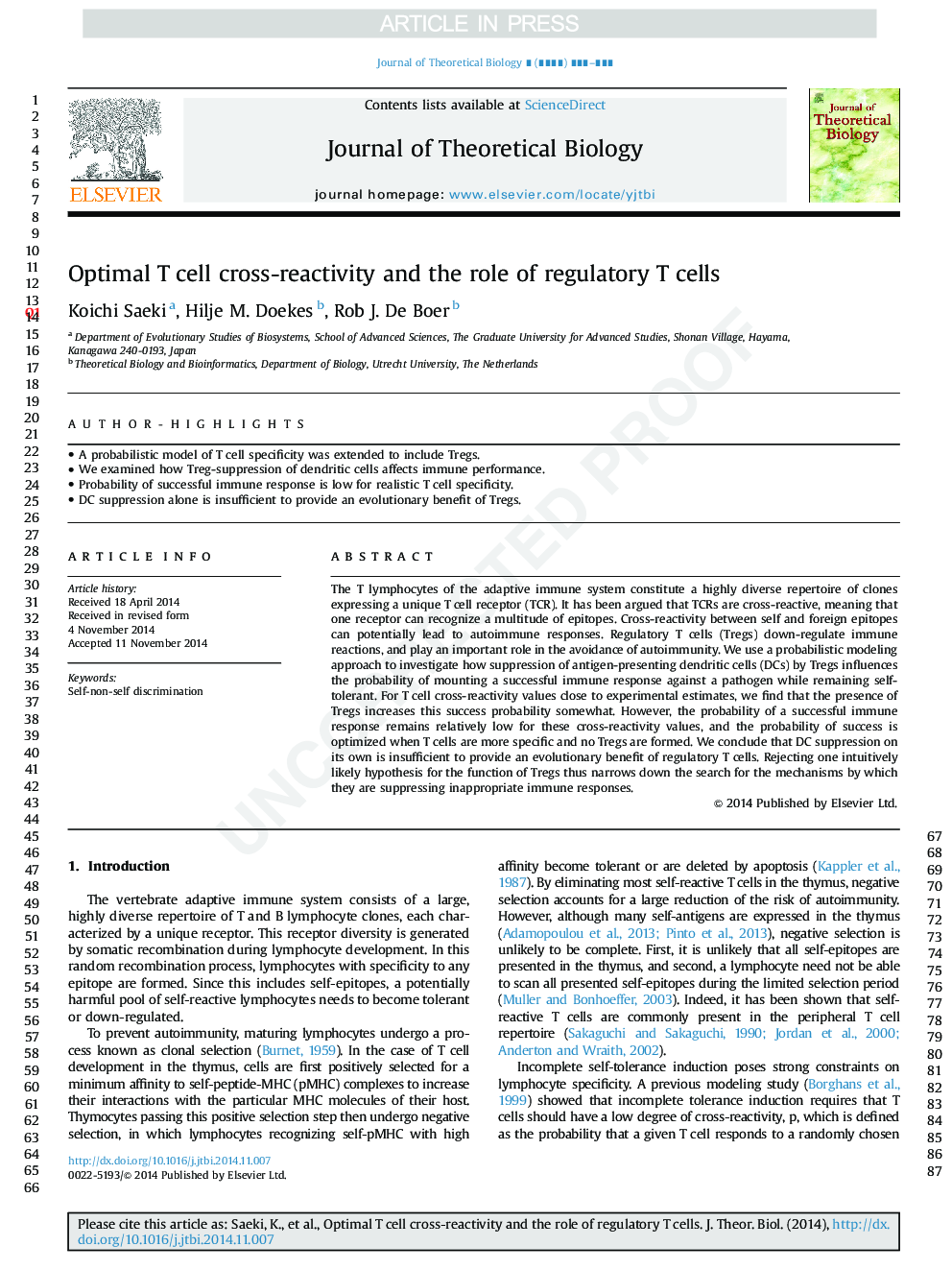| Article ID | Journal | Published Year | Pages | File Type |
|---|---|---|---|---|
| 6369748 | Journal of Theoretical Biology | 2015 | 9 Pages |
Abstract
The T lymphocytes of the adaptive immune system constitute a highly diverse repertoire of clones expressing a unique T cell receptor (TCR). It has been argued that TCRs are cross-reactive, meaning that one receptor can recognize a multitude of epitopes. Cross-reactivity between self and foreign epitopes can potentially lead to autoimmune responses. Regulatory T cells (Tregs) down-regulate immune reactions, and play an important role in the avoidance of autoimmunity. We use a probabilistic modeling approach to investigate how suppression of antigen-presenting dendritic cells (DCs) by Tregs influences the probability of mounting a successful immune response against a pathogen while remaining self-tolerant. For T cell cross-reactivity values close to experimental estimates, we find that the presence of Tregs increases this success probability somewhat. However, the probability of a successful immune response remains relatively low for these cross-reactivity values, and the probability of success is optimized when T cells are more specific and no Tregs are formed. We conclude that DC suppression on its own is insufficient to provide an evolutionary benefit of regulatory T cells. Rejecting one intuitively likely hypothesis for the function of Tregs thus narrows down the search for the mechanisms by which they are suppressing inappropriate immune responses.
Related Topics
Life Sciences
Agricultural and Biological Sciences
Agricultural and Biological Sciences (General)
Authors
Koichi Saeki, Hilje M. Doekes, Rob J. De Boer,
